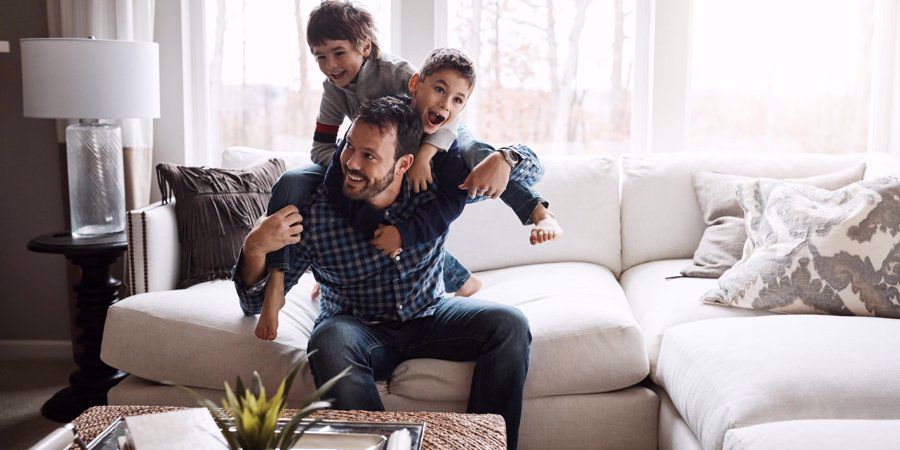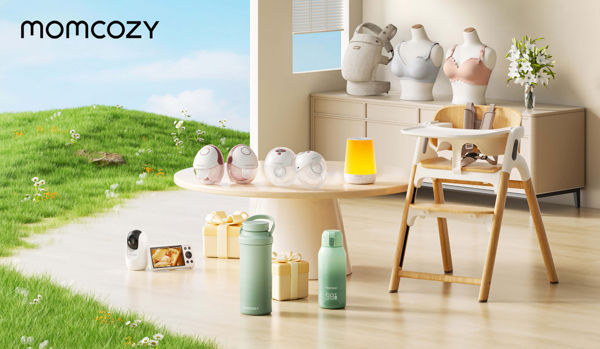Are you a tiger, a helicopter or a bulldozer?! The chances are you’ve heard some of these terms when referring to certain types of parents, and it’s not always in a positive light.
We’re giving you a guide to the most common parenting styles. Hopefully, this outline will give you some insight into your current style of parenting, and maybe some hints for how to achieve a different style.
Responsive parenting
This is often referred to as authoritative parenting and is one of the most common. Authoritative parenting involves a balance between firm and fair discipline and a high level of care. It’s about having high expectations of your children and giving them the resources to achieve them, but without doing everything for them. It essentially allows your children to self-start and create an independent image of themselves but with firm guidance and standards.
Uninvolved parenting
As the name suggests, this style of parenting is when the children and parents are not emotionally connected. Whilst the parents may provide everything the child needs in terms of food, a home and clothing, there is little emotional attachment. Uninvolved parenting may not be a chosen parenting style; it may come about due to issues such as addiction, stress or financial worries. Many parents fall into this without realizing, especially if they are overwhelmed by their situation for one reason or another. Emotional bonds are important to having healthy relationships with your children, so try to be mindful of their emotional needs just as much as their physical ones.
Authoritarian parenting
This is a different approach than authoritative, with expectations and rules being much stricter. Parents see themselves as in charge and expect that rules and boundaries are followed without challenge. Arguments against authoritarian parenting are that it can be too demanding and that parents lack warmth towards their children. Many also claim that it blocks emotional bonding with your children in this style because of the rigidity of rules. That may be the case, but it has also been shown to be effective for turning out well-behaved children in a non-abusive use of authoritarian style.
Tiger parenting
This is very similar to authoritarian parenting and is often found in families with Asian heritage. A tiger parent is very firmly in charge and expects obedience from their children. Another common aspect of tiger parenting is having high expectations of their child’s performance, in sports, music or academically. They can be seen as ‘pushy’ and demanding. Children of tiger parents may respond well to this, or they may seek to rebel and ‘break out’. This style is not culturally exclusive, but it has been practiced for many decades and does live among some cultural norms for upbringing.

Permissive parenting
This is the opposite of authoritarian parenting and exhibits an environment where boundaries and rules are very loose if present at all. They give their children plenty of warmth and love but without any demands. This style of parenting can lead to confusion in the children when placed in rule-driven environments, such as at school or in the workplace. While in a very loving environment, they are not developing a sense of establishment and expectations which most commonly comes from discipline of some kind.
Attachment parenting
This is often viewed as a ‘hippy’ form of parenting and involves the child being physically close to their mother as much as possible. This includes things like babywearing (in a sling or carrier), breastfeeding for a prolonged period of time and co-sleeping. It can be very reassuring for the child, and for the mother too, especially with their first baby. However, it is important for the child to build their own independence and to be happy to be away from their mother.
Science-based parenting
In a similar way to the attachment theory that sits behind attachment parenting, a science-based approach seeks to understand what is happening in your child’s brain and responding accordingly. There is a growing number of books available which give you insight into the brain activity of babies and children, and how this translates into how you should parent them. For example, not pushing your six-month-old into sharing, because that emotion has not developed yet.
Helicopter parenting
This is a fairly new term and describes parents who are over-involved with their children’s lives. They are overprotective in an effort to prevent any upset or problems that their child may face. For example, a helicopter parent will hover under their child on their monkey bars, ready to catch them if they fall. Whilst helicopter parents may see their actions as being caring, they do need to be aware that their actions could prevent their child from learning for themselves. It could also cause frustration in the child as they don’t have time to themselves, which can later lead to rebellious behaviors for a glimpse of freedom.
Bulldozer or lawnmower parenting
In a similar way to helicopter parenting, a bulldozer parent will go out of their way to stop their child failing. This could be as simple as challenging a grade at school or as extreme as bribing the football team coach! Think of the father of Veruca Salt in Charlie and the Chocolate Factory and you’ve got a classic bulldozer. It breeds an enabling behavior that is unhealthy long term and can very well develop a sense of entitlement because everything has been fixed or laid out for them.

Free-range parenting
This has nothing to do with eggs. In fact, free-range parents allow their children free rein on what they do, when and how. Arguments for free-range parenting is that it allows children to become independent and learn about life themselves. Arguments against the style are that children should not be left unaccompanied, especially under the age of twelve. This can be compared to the Attachment style in the lack of structure introduced to the child, which they otherwise might not understand.
How do parenting styles vary around the world?
In the US, we have our fair share of parenting styles and we all have our own views on the best one for our child. Across the world, there are plenty more parenting practices, many of which we would be horrified at doing back home!
In Japan, children who are as young as six, walk themselves to school and even run errands for their parents, all without supervision. They are also expected to help clean their classrooms and school buildings. The pay-off is that the crime rate in Japan is very low and there is a great sense of community, with children often being looked after by elders other than their parents.
According to the Washington Post, potty training in China starts very early with the majority of children being fully toilet trained by the age of two.
In Scandinavia, babies often nap outside in their bassinets, or strollers, even during the cold winters. It’s all thanks to the culture of open-air living (called Friluftsliv) where it’s believed that fresh air keeps children healthy. You’ll also find the excellent tradition of baby boxes – a box full of baby essentials given to all moms at birth, with the box doubling up as a place for the baby to sleep. The idea is being rolled out across Scotland and hopefully England and Wales in the near future.
In Finland, children don’t start school until they are aged seven. Once they do begin attending school, they have longer holidays and less homework. Even with all that, Finnish children regularly score highly in literacy, math and science.
In France and Italy, there’s not a big distinction between what children and their parents eat and drink. In France, children eat the same meals as adults and often sample small amounts of alcohol with meals. A study carried out by the Boston University Medical Center found that children who experienced wine at dinner time were actually less likely to develop issues with alcohol in later life. In Italy, wine appreciation and proper consumption of it is part of the school curriculum. They are taught moderation at a young age so they have no temptation to abuse it later in life.
In some African countries, the sense of community and ‘village’ raising is taken one step further. In Kenya and The Democratic Republic of Congo, mothers share their breast milk with children of their friends and family.
What’s right for you?
Do you know what sort of parent you are, or most importantly, what sort of parent you want to be? Your style of parenting can be affected by so many factors, including your environment and own upbringing. Often, the choices we make come from our subconscious, without us really stopping to think about it. This can be fine, like picking your child up when they have fallen over. However, you may regret your actions later on, and feel that you should have handled things differently. Perhaps you were uncomfortable letting your child try out that new piece of equipment in the playground. There’s absolutely nothing wrong with that. In the same way that our children are all different, we as parents are unique too. How you like to parent will be different from your friends and family, and possibly at odds with your partner. It’s important to be happy with how you are running things and not be trying to fit in with how you think you should be parenting. It may be that your parenting style is a combination of many of the styles described above, and it may change over time. It can often be the case that you need to parent siblings differently too. Regardless, it is okay to make mistakes and have to try something different if something just isn’t working for you and your child.
If you’re not sure about how you want to parent or want to change your style, here are some helpful questions to ask yourself:
- Do you like to go with the flow or prefer structure and order?
- Who will your baby be spending time with? Do they need to be comfortable in the care of someone apart from you or your partner?
- What is your partner’s view of your parenting style, and their own?
- What is your gut feeling about other styles of parenting?
- What impressions do you have from your own upbringing that may be swaying you?
- What other options do you have for your parenting style?
If you need a bit more help, there are plenty of helpful guides and books available. Although they don’t make it explicit, most of these will have an underlying parenting style running through them. When reading any material, make sure you that you feel comfortable following what is being said. For example, a strict routine for feeding and sleeping may be suitable for some babies and parents and provide reassurance for new mums. However, an attachment parenting approach may be more appropriate. No matter what you seek out, however, just know that there is no right answer. Everyone parents differently for every different child that is in the world. There is no 100% guarantee style of parenting, and there certainly isn’t a formula for success. Follow your gut feeling, get on the same page as your partner, and make sure everyone is happy, and it should all be fine whether you wear a baby sling or not.







